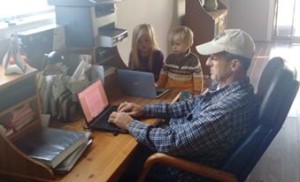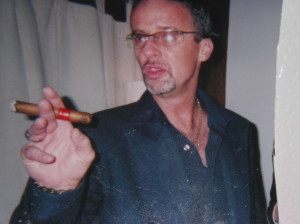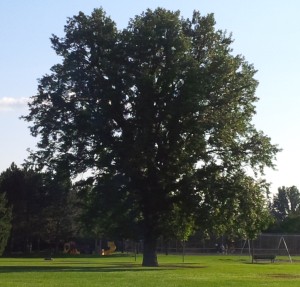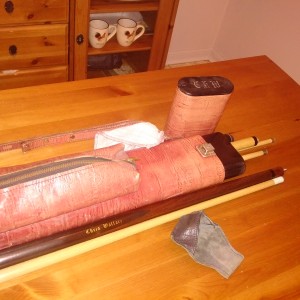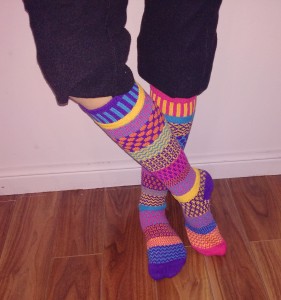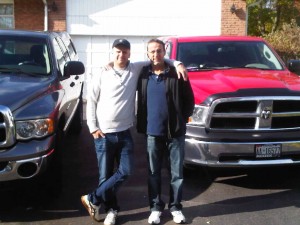
A few days ago, I shared on Facebook a CBC story about the death of a young man I didn’t personally know. Though he’d graduated high school and was learning to be a welder, Brad Grattan was still a teenager when he succumbed to the effects of playing a game of “beer pong” with hard alcohol. I offer my condolences to his friends and family.
You can read the full article here: http://www.cbc.ca/news/canada/new-brunswick/brady-grattan-drinking-game-death-1.3458093
To be honest, the idea of teenagers chugging hard liquor scares the heck out of me. I’ve lived too long and too faulted a life to not realize that that could have been me, or that it could have been friends of mine. Sadly, at times, it has been.
I can’t say I have the best answers to this. Brad had good parents and people in his life that cared and loved him. None of them could have predicted his fate. It can only serve to remind us all to be vigilant, to be parents to our children to the best of our ability. The dangers of drinking hard alcohol at that age are great, and most kids don’t know how lethal it can be. That’s the message his parents, Cody and Tracey Grattan, want people to know.
As a teen fresh out of the house in the 1970s, drinking and drugging parties were the norm in my world. Working with teenagers over the decades confirms things have not changed much since. Absent parents or other positive influences, things can get out of control pretty fast. Many of the kids I hung around with back in those days had brushes with death of their own. Two of my first three girlfriends had been hospitalized to have their stomach pumped because of alcohol. That’s how they did it back in those days. But even if the relationship between parents and teen is good, hard liquor represents one of the ways things can go awry really quickly. We never see it coming, do we?
When I was just sixteen and living on my own at a rooming house in downtown Ottawa, I used to hang out with my best friend at his father’s apartment on weekends. His dad was a medically retired lawyer who had contracted malaria during the 1950s Korean conflict which eventually left him in a wheelchair after developing multiple sclerosis. He managed to wrangle a full military pension but his marriage fell apart as he deteriorated into drinking more and more. The daughters had stayed with their mother while his only son moved into this tiny apartment with his father. There, it was party central most of the time, with every disillusioned young teen from our school area dropping by. Old man Nash would often send us to the liquor store across the street at Billing’s Bridge Plaza, where producing a note from him to the store clerk would get us his gin. Of course, we added our own purchases to the list of provisions too.
I was out of school by then, a high-school dropout. Dad and I had fallen out and I was on my own… something about two roosters living under the same roof and one of us had to go. Leaving a large family of siblings behind, the only world I’d known, meant I’d lost my rudder in life. I worked during the week at menial jobs and spent weekends at my friend’s drinking and getting high with the crowd there. It was where I felt welcomed. I used to sleep on the floor of my buddy’s room in a sleeping back after getting shit-faced.
One time, I drank a whole bottle of rye over the course of the night and blacked out completely. I woke up in my sleeping bag fully clothed and realized I had puked all over myself. To my horror, I then noticed that I’d actually shit and pissed my pants in my sleep, and then slept, unconscious more like it, in puke, shit and piss for the rest of the night. In the morning, all of this was partially dried and caked to my body, great scabs of human detritus of my own making, stuck to me like dried blood from battle. It was all we could do but carefully remove my wallet from my pocket with two fingers, and undress in the bag. I carefully emerged, first a head, then a naked torso, then the rest of me, dried puke on my arms and neck, shit caked against my ass. I headed to the shower and the soiled clothing stayed in the bag. My friend closed off the top of it, pinching it shut with one hand as he pinched his own nose from the stench with the other, and carried the lot of it straight down the hallway to the garbage chute. There it was tossed to everyone’s relief. He lent me fresh clothes so that I could go home. It was my first blackout, and first hangover. Not my last.
Many years later, my own son Corrie approached the age where drinking experimentation would be inevitable. Going off to meet his friends on a Friday night at someone’s house posed the same risk. There’s always a more tolerant parent somewhere who grants access to their basement or garage for mild partying, often as a way of keeping an eye on their own teen as they make their way into adulthood. Better here than out there, they figure. Sometimes, they have substance use issues of their own, but just as often not. It’s someone who wants to keep the fading connection of influence with their child at any cost.
So how did I handle this critical time with my son? Well, I knew that if I lost influence with my boy his peers would take my position pretty quickly. In fact, after around the age of fourteen, I noticed that his peer group had become such a big factor in his life that it was unlikely I’d ever regain what we once had. This was my sweet little boy, the kid who up until age ten automatically put his hand in mine as we prepared to cross a road or walk through a parking lot. I had given up so much to be his father; it was a role that had defined me for many years. How would I protect him from himself?
More importantly, how could I prevent him from becoming me?
Communication was the key, of course. That’s what I did my best to preserve no matter what. It meant suspending judgment and listening, and moving from parent to acting as an adviser most of the time. Easier said than done, that’s for sure, and I was far from perfect at it. But I realized that if I could position myself as his backup adviser, where he could come and rely on safe counsel without me jumping ahead to impose my views on him, I might stand a chance at keeping the connection. However awkward, it worked. People ask me about what my goal was with my boy during those years. My answer was always the same: to make sure he lives past the statistical danger years of fifteen to twenty-five. That’s still my best advice.
I had a big talk with Corrie about the insanity of drinking straight booze. We talked all about blackouts, hangovers, and about me pissing, puking and shitting all over myself. I told him about some of the teens who worked for me, kids he knew growing up by name, and some of their mishaps with alcohol. Sadly, Brad Grattan isn’t the first kid to die this way. When newspaper articles from that era reported how another kid lost his life to this folly, I’d seize upon it and we’d talk about it. We can honour the Grattan family by doing the same here.
Back in the days when I talked to my boy about drinking hard liquor, inadvertently, spontaneously, I ended up blurting out more than I had planned. Desperate, I took a gamble.
I told him I was so serious about this, that if he’d agree to never drink straight alcohol—to be wary of it, to be the guy who says no—I would instruct his mother to buy him his own beer to take to his friends. I remember thinking at the time, did I just say that? At this, his eyes lit up. “Really?” he asked. “Really,” I said. “If you drink a couple of beers in your friend’s basement that’s one thing, but the straight booze thing can’t be part of what you risk. I want to you to promise me and really mean it. Swear on it with me as a man.” He answered, “That’s awesome, dad, sure I’ll take you up on that promise, no problem. I will not drink straight alcohol.” I was crossing my fingers.
So, there it was that his mother and I dropped him off at his friend’s place a few blocks away on a Friday night. In he went, barely concealing the grin on his face as he stepped up to the curb to face his buddies, several of whom where outside, probably waiting to see if he’d actually appear with beer his parents bought him. Holding his little twelve pack of Coors light cans, he showed up like he was a rock star, his status assured at a critical time in his life. And all he had to do was not drink the hard stuff. He’s in his thirties now. He still drinks but has never been a big drinker. Though, I’ll worry a bit when he moves to Ireland later this year. Of all the places…
I suppose I just got lucky. It was the connection between us I worked hard to preserve that seems to have carried the day. I’m probably the least able to judge other’s behaviour given my own past. I don’t condone using my particular method, but that’s part of what worked for me. The important thing is to have the conversation with your teen, and to do whatever you can to keep the connection good between you. People need their attachments and our children naturally want to attach to their parents first. As that connection wanes, they will have no choice but to attach to their peer group. Nature makes it so.
And what do peers know? Not much if you ask me.
CKWallace, 2016, all rights reserved.
Contact me here if you need help getting through to your teen about alcohol.
Photo credit: CKWallace. Son and father with their Dodge pickups 2012.
